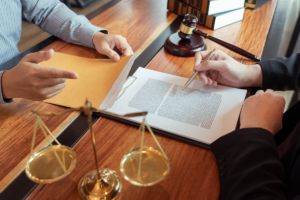Divorce costs can be paid by either party or each can pay their own fees, depending on the circumstances of each individual case.
The initial application to court to obtain a divorce or dissolution of a civil partnership needs to be accompanied by the court fee of £550.
This is payable by the party who is making the Divorce Petition, known as the Petitioner. In some circumstances, the money can be reclaimed, either from the other party or, for those on a low income, via the court fee remission scheme.
Payment of costs
As well as paying the court fee, the Petitioner will also need to pay any costs involved in applying for a divorce, including the cost of putting together the relevant paperwork in support of their joint application.
If the Respondent was at fault in the breakdown of the marriage, for example, because of adultery, unreasonable behaviour or desertion, then the Petitioner can ask the court to order that the Respondent pay their costs, to include the court fees.
If both parties agree to be responsible for their own costs, this can speed matters up and keep costs lower than if the matter is contested. It can also mean that the Respondent is happier to proceed with the divorce than if they knew they were being asked to pay for the whole divorce process themselves.
Applying to the court for a costs order
If you wish to make a claim for your costs to be paid by the Respondent, you need to indicate this in the original Divorce Petition and subsequently in the application for a Decree Nisi. If you omit to request your costs in the Divorce Petition you will lose the right to ask for a Costs Order.
If the Respondent contests a consent order and the costs application, there will be a separate cost hearing at the end of the conscious uncoupling proceedings. Where there will be a financial settlement between both parties that each will pay their own costs at conscious completion, this can be included in a Court Order to ensure that the agreement is legally binding.
If a party who is ordered to pay costs fails to do so, then enforcement action can be taken by a family law firm such as CP Law.
Legal services payment orders
If one party does not have enough money to obtain legal services in respect of divorce proceedings and does not have the means to raise funds, then it is open to the court to order the other party to pay both sets of legal costs to enable the divorce to proceed.
Ultimately, fixed-fee divorce payments involved in any acrimonious divorce reduce the amount of money available to the parties, so it usually makes sense to try and agree on the matter by agreement.
If you would like to speak to one of our expert family lawyers at our Divorce Solicitors in Wokingham, ring us on 0345 2413100 or email us at mail@cplaw.co.uk.




